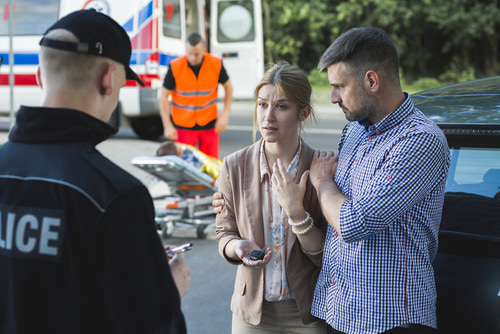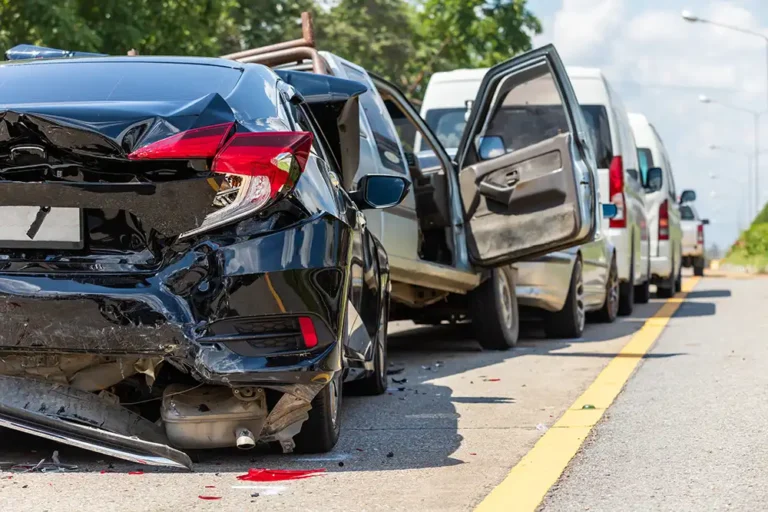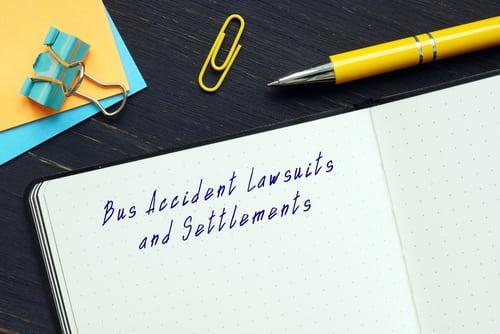When a car accident takes place, your initial reaction is often, “Was it my fault?” It’s at this moment that the legal process of determining fault begins. Rear-end accidents are usually the most straightforward in determining who made the traffic mistake. The term “no doubt liability” comes in to play with rear-end accidents because the vehicle in the rear is found to be at fault 99 percent of the time.
However, other accidents are harder to figure out and sometimes a driver is unfairly accused. Disputing fault and determining who pays for damages becomes an important next step.
No-Fault
No-fault insurance means that when you are in an accident, your auto insurance provider automatically pays for your damages, regardless of fault. For example, say that you are involved in a car accident and left with damage to your vehicle. In a no-fault state, you would file a claim with your own insurance company to cover the damage costs. There are 12 states that have a true no-fault insurance system in place.
At-Fault
However, Georgia is not one of the 12 states that follow this system. Georgia is a fault state, meaning that the driver that caused the accident is on the hook for the other driver’s damages.
No-fault and at-fault are important when determining insurance claims. And, insurance companies usually look to the police report to determine who was at-fault. If you are the driver responsible for the accident, you can dispute findings with your insurance company, as well as the police report.
Disputing a Police Report
Contacting the police after a car accident is strongly advised. They can help with medical assistance, as well as facilitate the exchange of information between drivers. They are also on the scene to collect information and issue a police report.
This report is important because it states whether or not the other driver was cited for violating any traffic laws. The report may also include notes on the accident including physical evidence and witness accounts. Insurance companies are more likely to pay for damages if there is a police report of the accident.
Say, for example, that you received a traffic violation in an accident. You have the right to fight the ticket. To do this, you can try to get in touch with the officer investigating the accident. Speaking to the officer and offering your side of the story could lead to an amendment to the police report.
Below are a few helpful tips for knowing what to say (or what not to say) to police officers:
- When the police arrive on the scene, try your best to remain calm.
- Limit your conversation to the facts of what happened.
- Do not make any admission of fault.
- Do not add any unsolicited information. For example, some people tell police that they were in a rush to get somewhere or they were looking at their child in the back seat.
- Keep it short and sweet. If the other driver turned left in front of you, simply tell the officer that and stop talking. If you were hit from behind, tell the officer that and stop talking.
Gather Evidence
Another tip for trying to prove fault of the other driver is to gather evidence at the scene of the accident.
- Take pictures of the accident scene – positions of cars, damage and accident location
- Check for cameras installed in the area and/or on your dashboard
- Take notice of the other driver for drugs and/or alcohol
- Speak to witnesses
How Insurance Companies Determine Fault
Even though auto insurance companies often look to the police report to determine at-fault, they still conduct their own investigation. Determining who is at-fault decides which insurance company will pay for damages. Insurance companies send out representatives that access damage, review police records, witness statements photographs, your statement as well as the other driver’s account of the accident. A representative (or adjuster) from both insurance companies work together during the investigation to compare all information available. After all the information is presented and discussed, the adjusters agree on fault allocation.
Besides contacting the officer listed on the police report to discuss an amendment, other ways to dispute fault is through the insurance company. Some insurance companies have internal policies that deal with disputed fault allocation. If you are disputing fault in a car accident, it is advised to consult with a lawyer to give you better representation in discussions with auto insurance companies.
Contact HS Law
If you are trying to dispute fault in a car accident case, contact HS to walk through your options. Schedule a free consultation online or call 404-400-1175. HS attorneys pride themselves in knowing the car accident legal process best, especially in the state of Georgia.
For more information, check out our frequently asked car accident questions. Read more about our experienced legal team here.
Related:
Alpharetta Brain Injury Lawyer
Alpharetta Pedestrian Accident Lawyer
Alpharetta Motorcycle Accident Lawyer
What Does a Personal Injury Attorney Do?
What to Do When Someone Else Has an Accident in Your Car in Alpharetta





